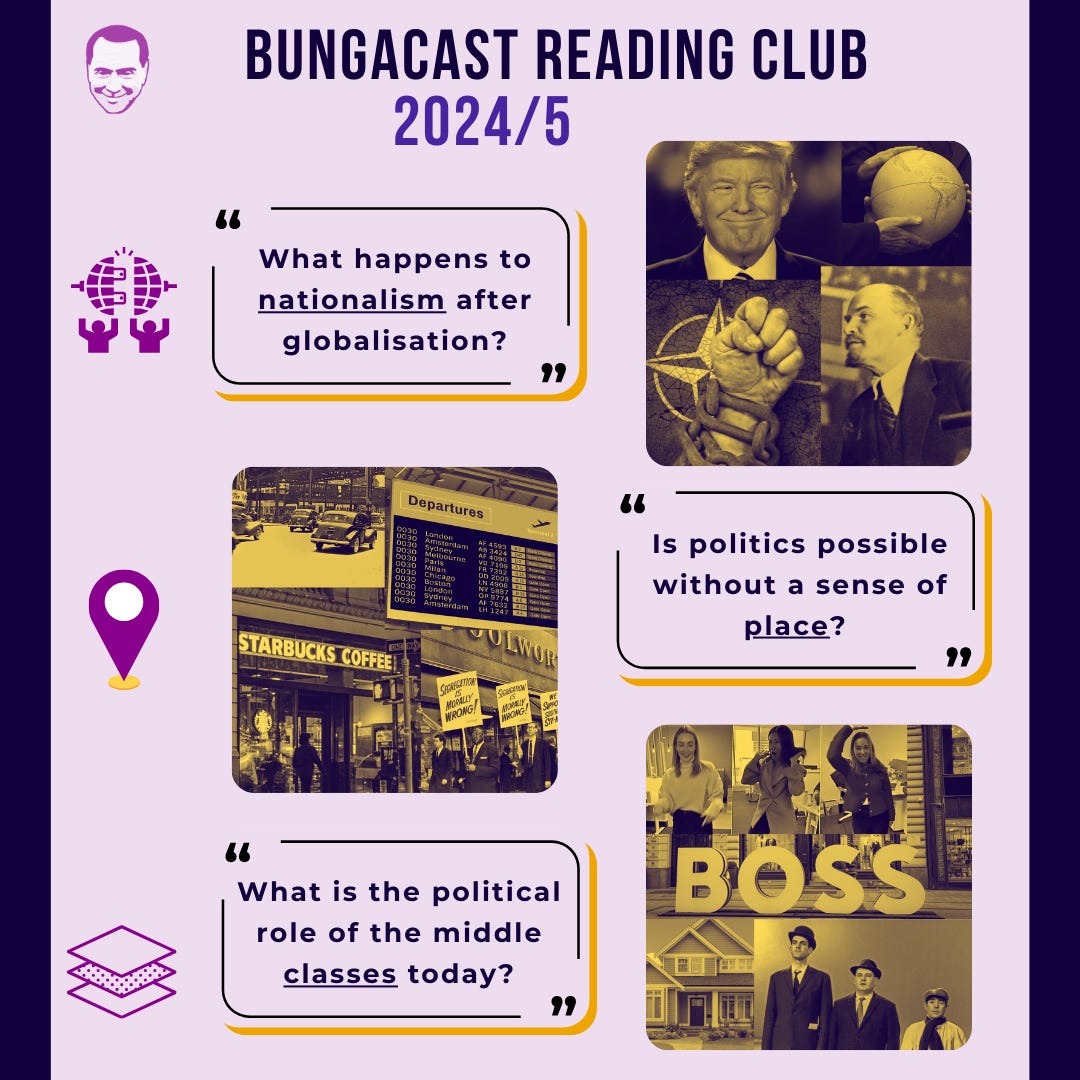On the transformation of place, nation, and class
Announcing: the themes & readings of our new Reading Club!
We've changed up (and, we hope, improved) our Reading Club again. In it, we identify the core themes and political issues of the year, and the key readings – both classic and contemporary – needed to understand them.
This time round, each month's readings are shorter and will be broached through more discussion. The final reading of each section will be discussed LIVE – that is, we'll livestream the episode and take questions and contributions from subscribers.
Click HERE to download the syllabus, containing links to pdfs.
As always, the Reading Club is open to GRAND CORRUPTION tier subscribers. Find out more at patreon.com/bungacast/membership
Theme 1: The Future of Place (Nov-Feb)
Place seems increasingly redundant, overcome by globalisation, digitalisation, cosmopolitanism, postmodernity. Cities are increasingly composed of identity-less and history-less “non-places”. We surely require spaces where people can gather – public squares or “third places” like bars and cafés. But does “place” necessarily imply rootedness or authenticity? What is the role of place in the generation of sociability and, indeed, political action?
Feat. readings of David Harvey, Georg Simmel, Richard Sennett & more
Theme 2: Inter/Nationalism in the 21st Century (Mar-Jun)
Globalisation was supposed to leave nations behind, sublimating internationalism into cosmopolitanism and relegating nationalism to the provinces, the ‘left behind’, the populists, and nativists. Now that we have passed peak globalisation and states are drafting national-level industrial policies, what happens to the nation? What happened to the nation and internationalism during the era of globalisation, and are we now returning to a new era of nations that correspondingly requires a new kind of internationalism?
Feat. readings of Perry Anderson, Ernest Gellner, Eric Hobsbawm & more
Theme 3: Class Today: The Problem of the Middle
Despite being a central category in sociological theory and political analysis, much contemporary discussion of class gets little beyond superficial discussion of status markers or parental occupations. The abatement of class struggle between workers and owners has shone a light on the role of the middle classes. Beyond the resurgence of the debate around the much-maligned professional-managerial class (PMC), what is the true role of the middle class in politics and society? Who rules today – and how would we go about answering that question?
Feat. readings of C. Wright Mills, Erno Mayer, Goran Therborn & more








